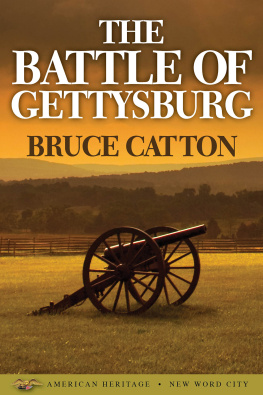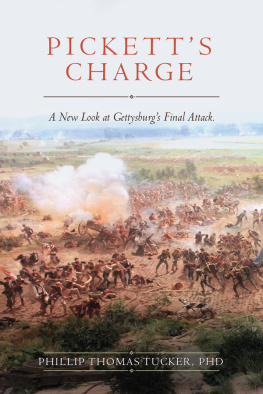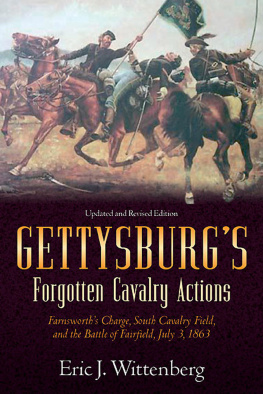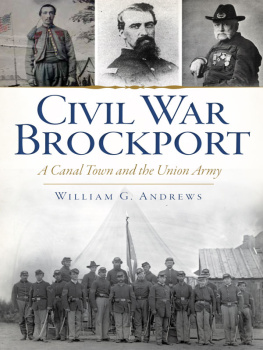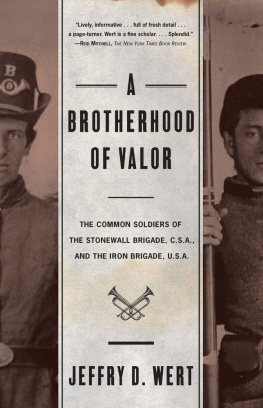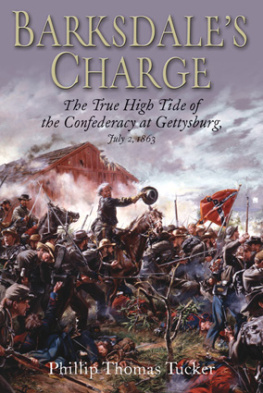If, as many have argued, the Civil War is the most crucial moment in our national life and Gettysburg its turning point, then the climax of the climax, and a central moment in our nation's history, is Pickett's Charge of 3 July 1863. This Civil War Short presents Carol Reardon's stirring narrative of the charge itself, drawn from Pickett's Charge in History and Memory, which demonstrates that the story of Pickett's Charge told today is really an amalgam of history and memory and that the evolution of that mix tells us much about how we come to understand our nation's past.
Carol Reardon is George Winfree Professor of American History at Pennsylvania State University and author of Launch the Intruders: A Naval Attack Squadron in the Vietnam War, 1972, and With a Sword in One Hand and Jomini in the Other: The Problem of Military Thought in the Civil War North, among other books.
UNC Press Civil War Shorts excerpt rousing narratives from distinguished books published by the University of North Carolina Press on the military, political, social, and cultural history of the Civil War era. Produced exclusively in ebook format, they focus on pivotal moments and figures and are intended to provide a concise introduction, stir the imagination, and encourage further exploration of the topic. For in-depth analysis, contextualization, and perspective, we invite readers to consider the original publications from which these works are drawn.
On Pickett's Charge consists of the prologue, chapters 1 and 2, and the epilogue from Pickett's Charge in History and Memory, by Carol Reardon. 1997 The University of North Carolina Press. All rights reserved. Originally published as part of the Civil War America series, Gary W. Gallagher, editor.
www.uncpress.unc.edu
The Library of Congress has cataloged the original edition of this book as follows:
Reardon, Carol
Pickett's charge in history and memory / Carol Reardon.
p. cm. (Civil War America)
Includes bibliographical references and index.
ISBN 978-0-8078-2379-8 (cloth: alk. paper)
1. Gettysburg (Pa.), Battle of, 1863. 2. Gettysburg (Pa.), Battle of, 1863Historiography. 3. Pickett, George E. (George Edward), 1825-1875. I. Title. II. Series.
E475.53.R33 1998
973.7349dc21 9710965
UNC Press Civil War Shorts ebook edition published in 2012
ISBN: 978-0-8078-3620-0
For more information on UNC Press ebook shorts, visit www.uncpressebookshorts.com.
PROLOGUE
HISTORY, MEMORY, AND PICKETTS CHARGE
Lieutenant Frank A. Haskell, who probably saw and then wrote more about the last great Southern assault on Cemetery Ridge at Gettysburg than any other eyewitness on that field, begrudgingly admitted that even his own powers of observation had limitations. After describing to his brother in voluminous detail and colorful prose all he could recall of the stirring events of July 3,1863, he concluded that a full account of the battle as it was will never, can never be made. Who could sketch the changes, the constant shifting of the bloody panorama? It is not possible. He feared that the great battles history, just, comprehensive, complete will never be written. With resignation, he concluded that by-and-by, out of the chaos of trash and falsehood that the news papers hold, out of the disjointed mass of reports, out of the traditions and tales that come down from the field, some eye that never saw the battle will select, and some pen will write what will be named the history.
A perceptive pessimist, Haskell understood that two powerful forces frame the way we recall past events: the objectivity of historythe search for truthand the subjectivity of memory, which shapes perceptions of that truth. He also realized that the tension between those two forces likely foredoomed to failure the efforts of even the most disinterested chronicler intent on recording for posterity what happened on July 3 at Gettysburg. Historians indeed would try to reconstruct what happened that day from snippets of description culled from official reports and hundreds of personal testimonies and weave together from these fragments of individual experience what they hoped would be an accurate and coherent narrative. Even the best scholar, however, could not tell the whole story. The selectivity of the soldiers memories had made this impossible. Years after the war, a Michigan veteran challenged his comrades to recall, if you can, any engagement of the war and positively state, of your own knowledge, that you passed through some particular field (a wheat field, for instance) when you were ordered forward to charge the enemys position. He knew that if they remembered crossing through a field at all, they likely would not recall its size, shape, or crop cover because, in battle, your horizon range was limited and many little incidents occurred in your immediate vicinity of which you were not cognizant. Much of the popular appeal the great charge still holds today results from the triumph of the forces of memory over history.
These memories offer valuable insights of their own. Even if they could not comprehend all they saw or did on July 3, soldiers tried for years to explain it to themselves, their families and friends, and even future generations. To celebrate personal survival or to find greater purpose, solace, or inspiration in what they witnessed, they gave in to the seductive, subjective, even self-indulgent pull of memory, preserving only those moments and events that held special meaning to them. The evocative nature of many of these memories easily captured the uncritical eye of chroniclers who neatly imposed a sense of order upon them and, as Haskell predicted, called it history. He indeed had hit the mark squarely when he suggested that the eye that never saw the battle exercised great power in choosing the memories deemed worthy of perpetuation. As a consequence, we know less about what really happened on July 3 at Gettysburg than history purports to tell us.
Nonetheless, that great discriminating eye anointed this one single eventthe great Confederate charge of July 3as the pivotal episode of the three-day fight. So much changed, or seemed to change, with the repulse of that assault. Victory finally visited the Army of the Potomac, and the Army of Northern Virginia bore the unaccustomed weight of defeat. As time passed and even greater meaning adhered to the repulse of the attack, the charge and its repulse took on a new role as the line of demarcation that ended all doubts about the resolution of the conflict and presaged the fall of the Confederacy, the end of the war, the continuation of the republic. Thus, this one special episode earned unique names that set it apart from every other military maneuver on that bloody field: Picketts Charge and, for some, the high water mark of the Rebellion.
Picketts Charge holds a secure place in our national imagination, but it rests on the double foundation of both history and memory. The two forces have blended together so seamlessly over the years that we cannot separate them now. Over the years, partisan chroniclers, poets, artists, novelists, visitors, even entrepreneurs, have found special inspiration in the events of July 3 at Gettysburg, often in ways the soldiers themselves could not have foreseen. Memory begins when something in the present stimulates an association, one scholar has suggested. A certain irony attends the fact that, in a nation that loves a winner, we remember the lan of the defeated Southerners before we recall the gallantry of the victorious Union defenders. The endurance in the nations historical consciousness of Picketts Charge suggests that it inspiredand still inspiresreflections and emotions that spring from a source far removed from respect for historical truth.


